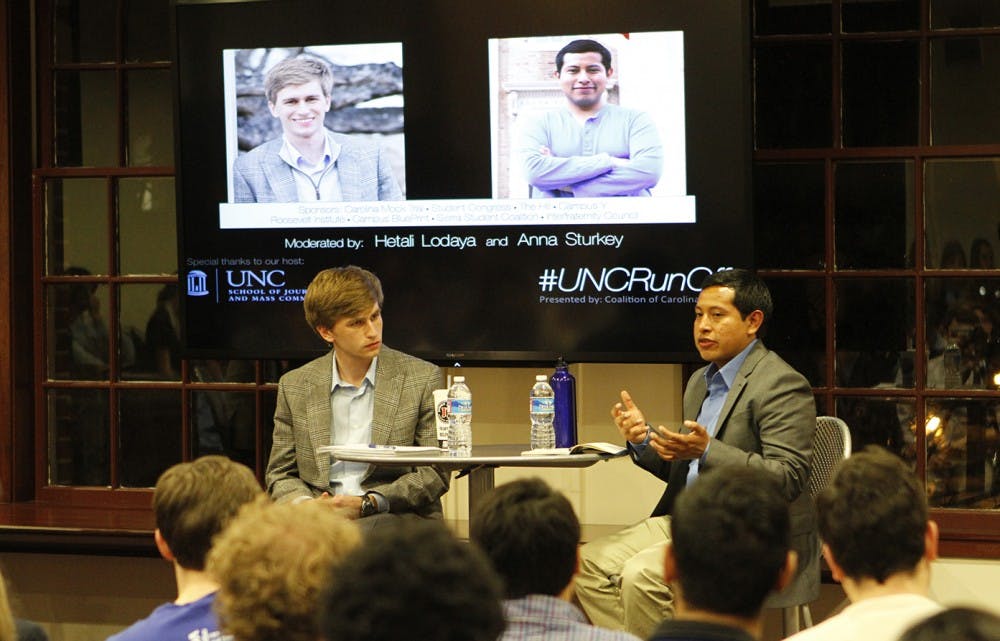CORRECTION: Due to a reporting error, a previous version of this article misattributed a quote to Andrew Powell. The article has been updated to reflect this change. The Daily Tar Heel apologizes for the error.
No publicity is bad publicity, so the phrase goes.
Yet in the race for student body president, publicity has put candidate Emilio Vicente on the defensive against critics who say he is more concerned with making national headlines than working on UNC-specific issues.
“I just want to reiterate that I’m not running to get national media attention or boost my resume, I’m running because I want to hear from you, Carolina students,” Vicente said at Monday’s rare runoff election debate with opponent Andrew Powell.
Just hours before polls opened at midnight, the two publicly challenged each other’s platforms and philosophies in an overflowing room in Carroll Hall Monday night. The debate was organized by the Coalition of Carolina Voters, an unofficial collection of recognized student groups.
Moderators Hetali Lodaya, a 2013 student body president candidate, and Anna Sturkey, undergraduate student attorney general, encouraged the candidates to speak informally and respond to each other directly.
The candidates also clashed over the current effectiveness of student government.
Vicente said that his plan for listening sessions would lead to greater student involvement and more effective advocacy.
“The problem with student government is that it works in a silo,” said Vicente. “That’s what my listening sessions are about.”



